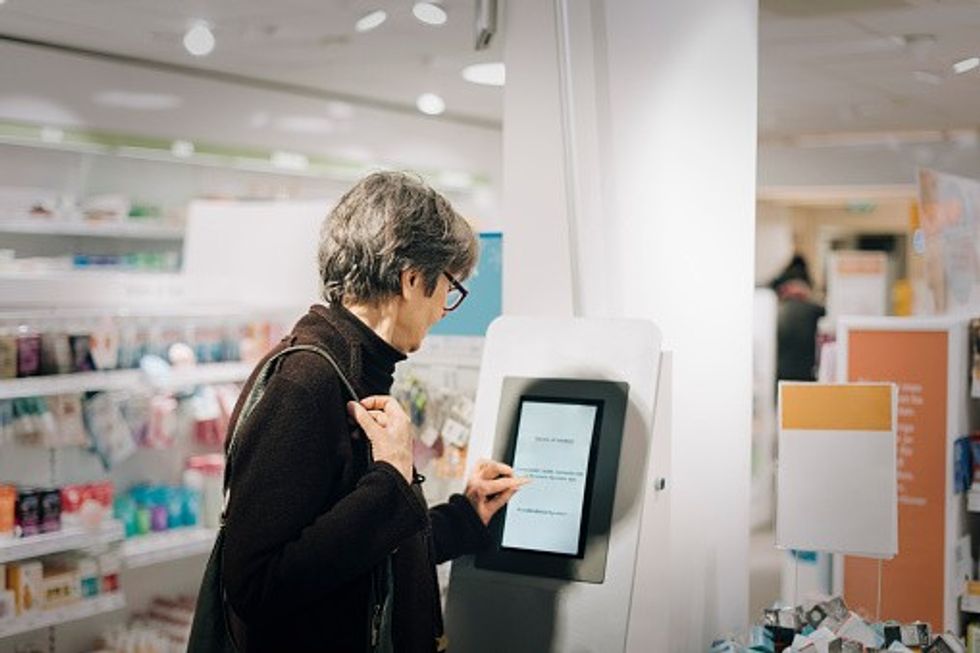‘Unless there is openness and transparency between the government and manufacturers, resolving medicine shortages will remain impossible’
Health charities and community pharmacists have warned the government that the ongoing drug shortage crisis in the UK will put more patients’ health at risk if the issues in the medicines supply chain are not promptly addressed.
The warning comes as new survey data from charities supporting people with epilepsy and Parkinson’s indicates that many patients are facing difficulties accessing their vital medication.
Concerningly, 70 per cent of respondents reported they have encountered difficulties getting hold of essential medication over the past year, with nearly a quarter (22 per cent) experiencing problems in the last month.
More than half of the surveyed patients had to visit several pharmacies before obtaining their medication, and two-thirds received only a portion of the prescribed amount to tide them over until additional supplies became available.
The Association of Independent Multiple Pharmacies (AIMp), along with the Epilepsy Society, Epilepsy Action, SUDEP Action and Parkinson’s UK, has urged the government for a complete review of the medicines supply chain.
They said that without openness and transparency between the government and manufacturers, resolving medicine shortages will remain impossible.
Dr Leyla Hannbeck, CEO of the AIMp, emphasised that the medicines supply chain is “broken at every level” and achieving the necessary stability to ensure patients receive their prescriptions when needed will remain unattainable “unless the Department of Health reviews its processes and procedures.”
“The UK has a smaller medicines budget than anywhere else in Europe or the US. The NHS is continually driving down the price of medications, which means that manufacturers prefer to sell outside of the UK where they can make a better profit.
“The system is overly complex and shrouded in secrecy – what we need is openness and transparency.”
Pharmacists are in a similar predicament as patients. Because pharmacists are at the end of the supply chain, they are often the last people to receive information about medication shortages. As a result, Dr Hannbeck said, “we are unable to plan in advance and support the people who rely on us for their medications.”
The charities and AIMp are calling for an urgent meeting with the Health Secretary, Victoria Atkins.
The survey also uncovered a concerning scenario in which patients are forced to either ration their medication or temporarily switch to a different brand or version of the drug because of supply issues.
It was found that around half of patients with epilepsy and Parkinson’s involved in the study were provided a different brand or version of their medication.
Almost 40 per cent of respondents with epilepsy reported experiencing seizures triggered by switching or skipping medication, while 36 per cent of patients with Parkinson’s stated that the stress of obtaining their prescription led to worsening of their symptoms.
Clare Pelham, CEO of the Epilepsy Society, said that access to a prescription for potentially life-saving medication must be recognised as a fundamental right.
She added that the next government, regardless of which party comes to power, must make it a priority “to work with charities and pharmacists to ensure that the medicines supply chain is robust.”
Juliet Tizzard, Director of External Relations at Parkinson's UK, expressed that the failing system is causing “avoidable harm to people already living with challenging conditions."
Sammy Ashby, Chief Executive of SUDEP Action, raised concern many people with epilepsy are exposed to intolerable levels of risk due to shortages in medicines.
She said: “Sadly, too many people still underestimate or ignore the risks of epilepsy; failing to recognise that medicines are the first line of defence against preventable epilepsy deaths, including SUDEP (Sudden Unexpected Death in Epilepsy).”
Rebekah Smith, Deputy Chief Executive at Epilepsy Action, said that patients deserve to know “why this is happening, and when it’s going to get solved” and that’s why they have joined other charities and associations in calling on the government to take immediate action.
Meanwhile, the Department of Health and Social Care (DHSC) has released a statement stating that they have taken swift action with NHS England and other stakeholders to improve the supply of epilepsy medications.
According to a DHSC spokesperson, access to some medications has already seen improvement, with supplies of others expected to improve in the coming months.
“All issues with the supply of medication for Parkinson’s disease have now been resolved,” said the spokesperson, who also confirmed that guidance has been issued to health professionals on “how to support patients whilst supply is disrupted.”



















 A woman using kiosk at pharmacy store gettyimages
A woman using kiosk at pharmacy store gettyimages  Pharmacist examining commissioning machine in pharmacy gettyimages
Pharmacist examining commissioning machine in pharmacy gettyimages